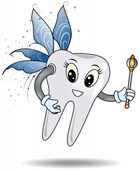 Suffering from bad breath can be very embarrassing, especially as it is often very hard if not impossible to tell if it is affecting you. We’ve all tried the cupping of hands move, or even the licking the arm and smelling it. These don’t really work and often make you look quite foolish. If you know you are susceptible to bad breath this can often affect your confidence when going into certain situations and can cause you to be distracted and undermine your self-esteem.
Suffering from bad breath can be very embarrassing, especially as it is often very hard if not impossible to tell if it is affecting you. We’ve all tried the cupping of hands move, or even the licking the arm and smelling it. These don’t really work and often make you look quite foolish. If you know you are susceptible to bad breath this can often affect your confidence when going into certain situations and can cause you to be distracted and undermine your self-esteem.
There are many supposed cures for bad breath such as mouth wash, oral sprays and certain diets but the reality is that these do little more than mask the smell temporarily and in some cases could even make the problem worse. According to dentists, most cases of bad breath originate in the mouth (around ten per cent are concerned with digestion problems) and have to be treated as an oral problem with traditional oral hygiene methods.
The majority of cases of bad breath are caused by either poor standards of oral hygiene. This causes a build up of bacteria and food debris in the mouth, which begins to smell, or as the result of gum disease which also releases a distinct but unpleasant odour.
The best way to treat bad breath and ensure it stays away is to improve how you clean your teeth. Brushing should be carried out effectively for three minutes twice a day and should be followed by flossing. This is very important for keeping bad breath away as it removes trapped food debris form the hard to reach areas of the mouth, such as between the teeth and around the base on the teeth near the gums. Using a tongue scraper to clean the tongue once a week will also remove potential smells form the surface of the tongue. Your Central Leeds dentist will show you how to effectively clean teeth and keep bad breath away at a routine check up appointment.





 Central Leeds dentists are always stressing the importance of flossing to all patients at dental check ups. This is because despite all the evidence that points to the benefits of flossing, there is still only a relatively small percentage of people who actually do it. Nearly everyone brushes their teeth, but many people are perhaps wrongly convinced that this enough.
Central Leeds dentists are always stressing the importance of flossing to all patients at dental check ups. This is because despite all the evidence that points to the benefits of flossing, there is still only a relatively small percentage of people who actually do it. Nearly everyone brushes their teeth, but many people are perhaps wrongly convinced that this enough. If you have lost a tooth, either due to decay or as the result of an accident, you will be aware of the pain and anxiety it can cause. Missing teeth in the dental arc are very obvious and can really ruin the appearance of an otherwise perfect smile. There are also a number of medical reasons why missing teeth are a major problem. They encourage the movement of other teeth in the mouth that can cause bite interruptions. Teeth also act as support for facial tissue, so if one is missing it can cause a sagging, sunken appearance.
If you have lost a tooth, either due to decay or as the result of an accident, you will be aware of the pain and anxiety it can cause. Missing teeth in the dental arc are very obvious and can really ruin the appearance of an otherwise perfect smile. There are also a number of medical reasons why missing teeth are a major problem. They encourage the movement of other teeth in the mouth that can cause bite interruptions. Teeth also act as support for facial tissue, so if one is missing it can cause a sagging, sunken appearance. When teeth come under attack from decay or disease, or when they have simply been damaged in an accident, they can often become very fragile and susceptible to further problems and a great deal of pain. In these circumstances it is often necessary for the dentist to fit a dental crown over the tooth to restore the cosmetic appearance and secure the tooth against further damage.
When teeth come under attack from decay or disease, or when they have simply been damaged in an accident, they can often become very fragile and susceptible to further problems and a great deal of pain. In these circumstances it is often necessary for the dentist to fit a dental crown over the tooth to restore the cosmetic appearance and secure the tooth against further damage. Gum disease is perhaps not the best known effect of diabetes but it is nevertheless an important one. It is estimated that over a third of all diabetes sufferers will contract some form of gum disease, also known as periodontitis, at some stage.
Gum disease is perhaps not the best known effect of diabetes but it is nevertheless an important one. It is estimated that over a third of all diabetes sufferers will contract some form of gum disease, also known as periodontitis, at some stage. What are dental implants?
What are dental implants? There are many common dental emergencies caused by dental disease or dental trauma that can be of serious cause for concern. In times of dental trauma it is important to know what action you can take to increase your chances of successful treatment and reduce the pain you may be suffering. It is also important that you know how to get hold of a dentist even in unusual hours or circumstances.
There are many common dental emergencies caused by dental disease or dental trauma that can be of serious cause for concern. In times of dental trauma it is important to know what action you can take to increase your chances of successful treatment and reduce the pain you may be suffering. It is also important that you know how to get hold of a dentist even in unusual hours or circumstances. Looking after the health of your teeth and gums is not just important for your mouth but could also make a difference to your overall health. With dental decay on the increase due to an increase in sugary diets and worsening standards of oral hygiene, and gum disease affecting nearly three quarters of all adults in the UK at some stage in their life, it is more important than ever to ensure a good standard of oral care.
Looking after the health of your teeth and gums is not just important for your mouth but could also make a difference to your overall health. With dental decay on the increase due to an increase in sugary diets and worsening standards of oral hygiene, and gum disease affecting nearly three quarters of all adults in the UK at some stage in their life, it is more important than ever to ensure a good standard of oral care. Bad breath can be caused by a number of factors. A small percentage of cases are caused by digestion problems or other internal concerns but in nearly 90 per cent of cases, it is caused by problems occurring in the oral cavity. This could be the result of poor standards of oral hygiene. Food and bacteria that are trapped in small spaces between the teeth and in the grooves of the tongue will decay and release nasty smelling sulphurous compounds, which are then expelled on the breath. This kind of bad breath can be masked by using oral products, but only temporarily. The only sure-fire cure for this kind of bad breath is to make dramatic improvements in your daily oral hygiene routine and ensure you are brushing and flossing correctly.
Bad breath can be caused by a number of factors. A small percentage of cases are caused by digestion problems or other internal concerns but in nearly 90 per cent of cases, it is caused by problems occurring in the oral cavity. This could be the result of poor standards of oral hygiene. Food and bacteria that are trapped in small spaces between the teeth and in the grooves of the tongue will decay and release nasty smelling sulphurous compounds, which are then expelled on the breath. This kind of bad breath can be masked by using oral products, but only temporarily. The only sure-fire cure for this kind of bad breath is to make dramatic improvements in your daily oral hygiene routine and ensure you are brushing and flossing correctly. It is very important to look after your teeth and gums. It is all to easy to assume that they will be fine as long as they are not causing you any problems and carry on with your simple routine of brushing in the morning and evening. But in reality, your teeth need a lot more care and when it’s too late you really might regret not being more careful about how you took care of them.
It is very important to look after your teeth and gums. It is all to easy to assume that they will be fine as long as they are not causing you any problems and carry on with your simple routine of brushing in the morning and evening. But in reality, your teeth need a lot more care and when it’s too late you really might regret not being more careful about how you took care of them.

